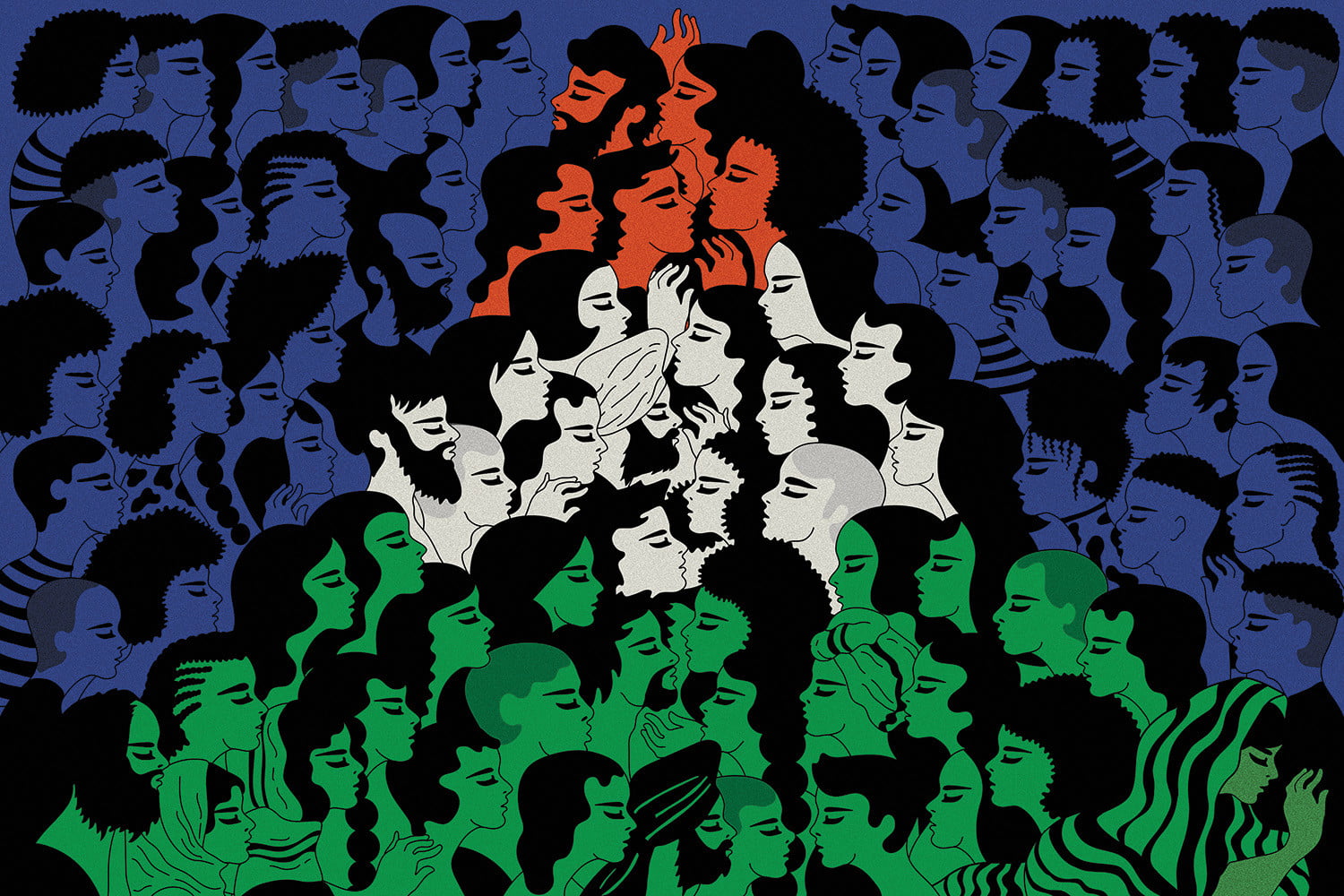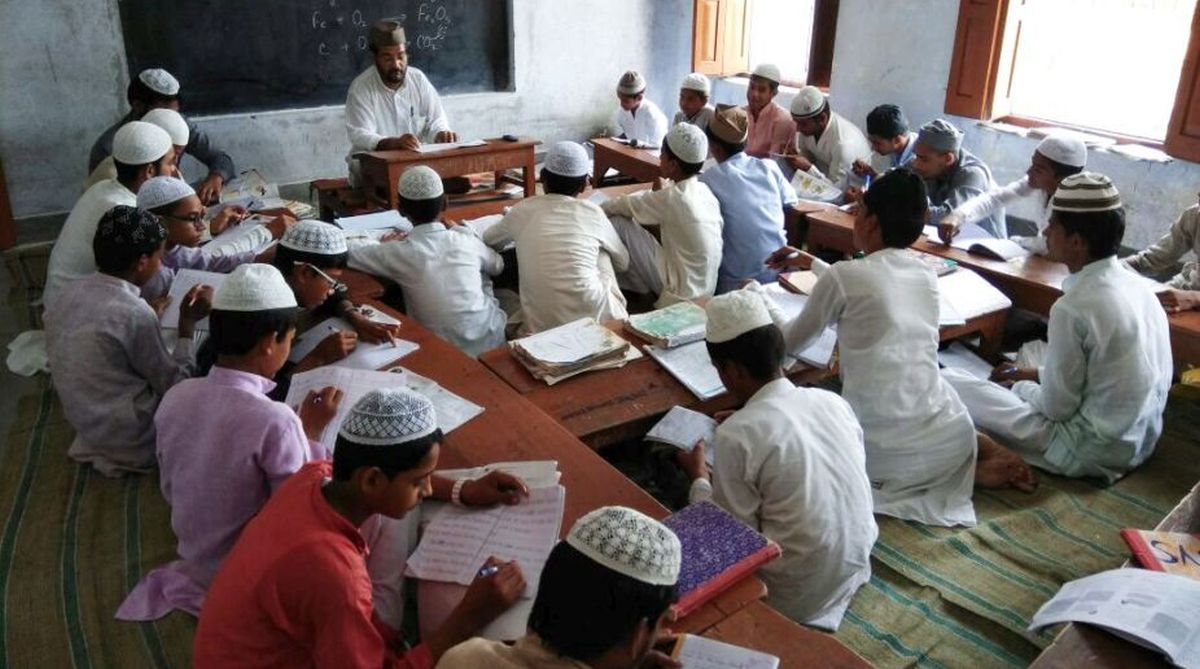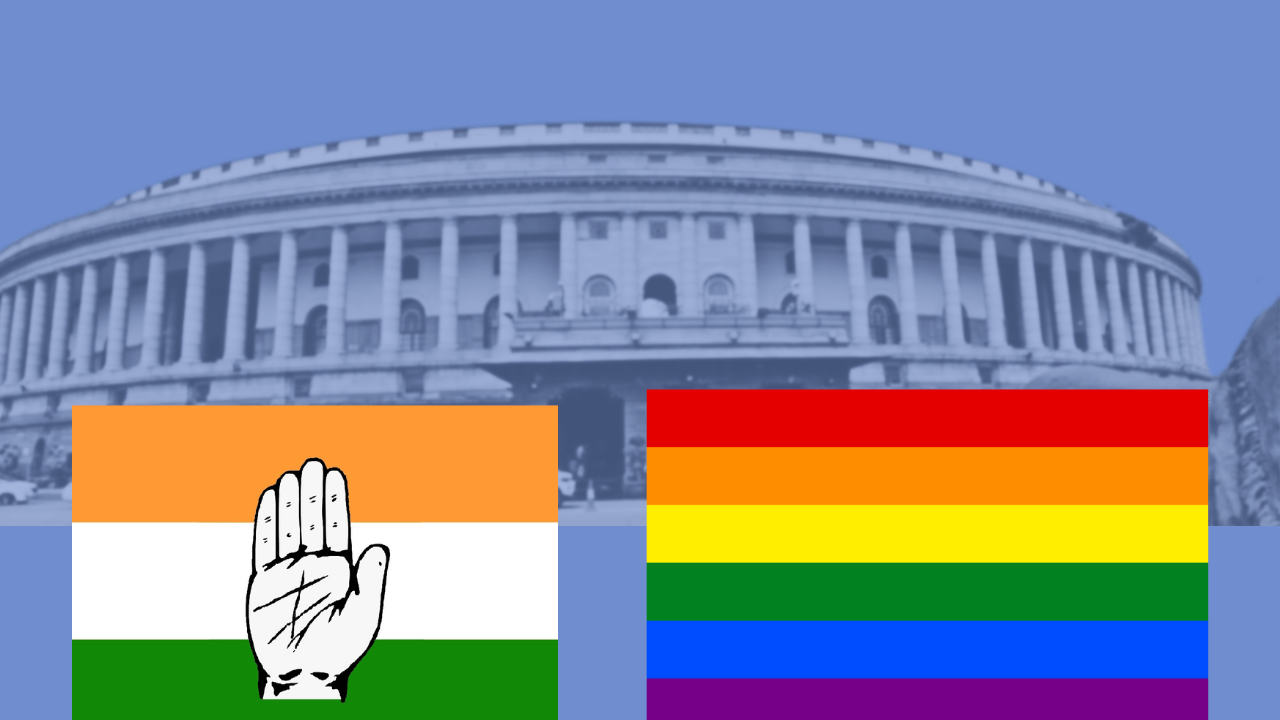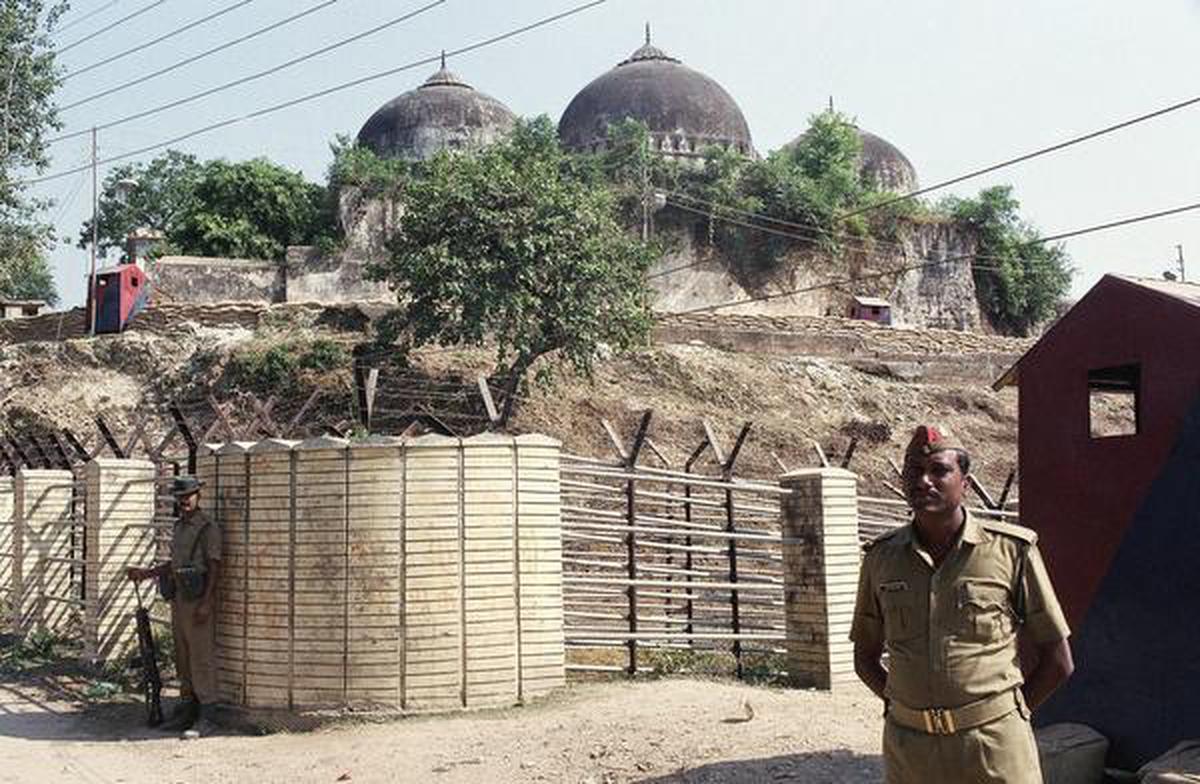In the mainstream intelligentsia, Dr. Bhimrao Ramji Ambedkar is revered as the Chairman of the Drafting Committee, who spearheaded the drafting of the Indian Constitution, as well as the champion of Dalit assertion and political mobility. However, the selective exclusion of Dr. Ambedkar from the subject of ‘nationalism’ can be considered a strategy of the ruling elite to maintain their hegemony in knowledge production and socialisation. Dr. Ambedkar was severely condemned for his scholarly critique of the mainstream nationalism led by the nationalist forces of the 20th century.
His arguments reflected a strong dissent towards the legitimization of what was construed as ‘Indian nationalism’ during the 19th century struggle for freedom. Dr. Ambedkar’s scholarly dissent against the dominant nationalist ideologies of the time can be traced to the period between 1930-1947. This was the period that saw the fall of British imperialism, the rise of the Indian nationalist sentiment and the redistribution of political power in the mainstream.
The principal contention of Dr. Ambedkar’s nationalism was the capturing and equitable sharing of political power in the backdrop of receding colonialism and an accelerating development of the Indian state
The principal contention of Dr. Ambedkar’s nationalism was the capturing and equitable sharing of political power in the backdrop of receding colonialism and an accelerating development of the Indian state. This equitable power-sharing became the central struggle of the marginalised classes of the newly emerging nation-state. Dr. Ambedkar’s nationalist expression entailed the sociological and ideological reconstruction of the excluded majority within the Indian society. His points of contention now serve as critical standpoints to understand the contemporary political and social development of the ‘hitherto’ oppressed classes.

Elite Nationalism – A tool for oppressive gate keeping
The realisation of Bahujan nationalist politics threatened the power preservation of the middle class leadership led by the elite forces. The insistence of the elite on gate keeping the power monopoly and their consistent appropriation of it gave rise to the development of a political battle within the nation polarised between the Bahujans and the Savarnas. Dr. Ambedkar unambiguously identifies the governing and nationalist class of India as Brahmanical- the varna-sensitive middle class – who have strategically chosen not to give up their caste privileges that they had been enjoying from the pre-modern times.
The outwardly secular character of the governing nationalist class was a disguise for their Hinduistic adherence. Dr. Ambedkar refused to draw any distinction between the secular Congress body and the sectarian Hindu Maha Sabha. The supposed secular political body of the Congress in composition inevitably reflected the Brahmanical aspirations of their leaders. Dr. Ambedkar extended this idea by arguing that the Brahmins have always had other varnas to continue the subordination of the Bahujans with their crafted alliances.
Also Read: Dr. Ambedkar & The History Of His Resistance Against The Hindu Right Wing
While in the pre-modern times, the Brahmins allied with Kshatriyas for their political protection and armament, the commercialisation of the society saw a shift in these equations. To retain political power in the modern times, the Brahmins colluded with the Bania class to facilitate their capital hegemony. Dr. Ambedkar exposed the infrastructural and civil reformation projects of the governing class in a sovereign state as an attempt to exploit Bahujan labour.
The sheer ignorance of the nationalist class to address the internal limitations of such a social amelioration programme is an effort to preserve their vested interests and prejudices. Dr. Ambedkar staunchly declared that the governing class is an isolated body, alien to the aspirations of all Indians. He referred to them as a class which strives to maintain its domination and fails to empathise with the lived realities of 80 percent of the population, who are non-elite.
Redefining nationalism – A fundamental change in social orientations
Dr. Ambedkar described Hindu nationalism as an ideological weapon, a double edged sword with its dupe of the anti-colonial rhetoric as the external dimension and the preservation of the Brahmanical tradition deep beneath. The precarious leadership of the nationalist class consistently and consciously sought the realisation of this internal objective through its anti-colonial disposition. The purpose was to bring the insurgent masses within the colonially patronised Brahmanical ideology of nationhood.
A sociological understanding would define ‘nation’ as a space with new forms of social relations reflecting a modern, liberative and egalitarian character and a reconfiguration of power within the internal groups. Such a conceptual idea of nation calls for a fundamental change in the social orientations of internal relationships, a ‘social endosmosis’ and amalgamation anchored on the principles of liberty, equality and fraternity. According to Dr. Ambedkar, a political discourse which yearns for the aforementioned ideal justifies the demand of what is to be constituted as ‘nationalism’.
However, the stalwarts of ‘Indian Nationalism’ like Gandhi, Nehru, Tilak and Lala Lajpat Rai among many others in their speech and practice made it clear that the reconfiguration of power in the sovereign state was to be done along the lines of the traditional faculty. The objective was to modify, reinstate, reaffirm, modernize and institutionalize the exploitative Brahmanical tradition within the normative space of modern India.
While the nationalism of the governing/ruling class was reinforced along with its divisive caste politics, Dr. Ambedkar’s nationalism had an inclusive, egalitarian conscience
The non-conformity to this ambition of the ‘nationalist classes’ of the Indian National Congress was met with aggressive under toning and dismissal. The monopoly over the euphemism of ‘nationalism’ was reiterated by dismissing opposing voices like that of Dr. Ambedkar as stooges of imperialism and accomplices to the British.
While the nationalism of the governing/ruling class was reinforced along with its divisive caste politics, Dr. Ambedkar’s nationalism had an inclusive, egalitarian conscience. It focused on neutralising all external and internal constraints through the propagation of relational equality and the collective aspiration of self-determination of both the individual and the nation-community. This could only be achieved with the sacrifice of vested, sectarian interests for the larger national interest of the ‘people’ of India.
Also Read: Too Radical For Savarnas: Anti-Caste Feminist Legislation By Dalit Women & Dr. Ambedkar
Nationalism – A social feeling of belongingness
Dr. Ambedkar contended that people live in a community by virtue of what they have in common. The pursuit of common interests, aims, beliefs, history, aspirations, language and knowledge is facilitated by participating in a common activity that attempts to meet these ends. Such kindred alikeness cannot be facilitated through physical proximity or similarity in habits and beliefs through cultural diffusion.
The community should possess a common interest that results in the development of fraternity and ‘consciousness of kind’. However, the caste system in its very constitution prevents such common activity, thereby, failing to produce social homogeneity that advances the feeling of belonging to a common nationality.
Participation in a group is the only way to have a sense of communion. The isolation of marginalised groups is an evil that prevents re-socialisation. According to Dr. Ambedkar, a nation as an ideal society should be mobile and should accelerate conscious communication of shared interests. This will enable the people to develop a social feeling of ‘nationality’, a sentiment that sensitises the people and instills a longing to live together.
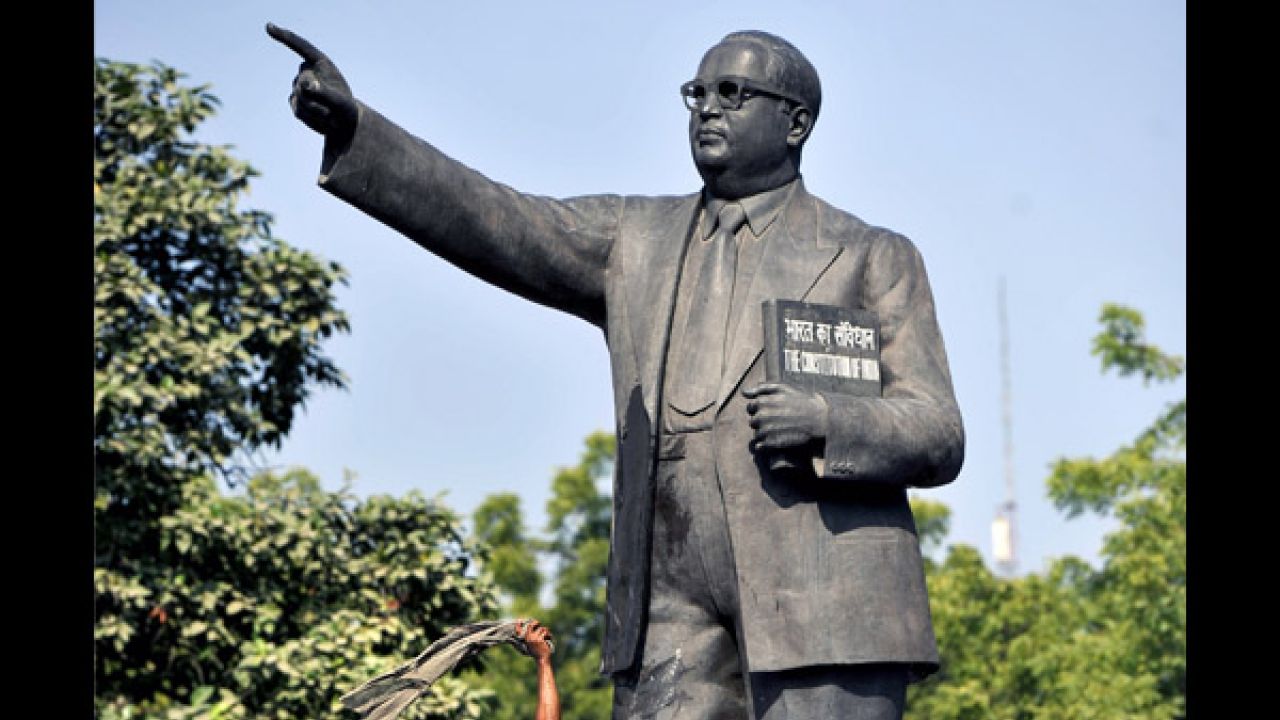
Freedom for the ‘Untouchables’
Dr. Ambedkar believed that if the important institutions of a democracy like the judiciary and law uphold the idea of free and equal citizenship, the same parity should manifest among the other social institutions as well. If the political mobilisation of the nation does not aim to transcend power appropriation on the lines of caste, such a political movement could be anything but nationalistic in its true sense. In that case, the state fails to be an institutional reflection of the nation’s sociological presence.
Dr. Ambedkar believed that if the important institutions of a democracy like the judiciary and law uphold the idea of free and equal citizenship, the same parity should manifest among the other social institutions as well
Dr. Ambedkar was of the view that the oppression of the Bahujans will never be resolved unless there is a redistribution of political power. The demand was for the political sovereignty of a community that had undergone severe tyranny by the power-captivator class of Savarnas. This called for a political recognition of the then ‘depressed’ class. The temperament of the dilemma was no longer social but political.
The social determinism of the Savarna class has no place for merit and ability. The only thing that counts for such determination is the persuasion of caste and caste privilege. This social mechanism will prevent the Bahujans to gain political power. The caste system that mirrors an ascending scale of reverence and a descending scale of contempt will blind the Bahujans to their own political enslavement. The ‘aristocracy’ of the governing Brahmanical class with social, cultural and political supremacy is unworthy to be entrusted with the power to govern the other.
Drawing contemporary relevance to Dr. Ambedkar’s position, it is imperative to investigate whether a proportionate shift or re-configuration of political power has taken place with respect to the then ‘untouchables’ of the 20th century. Further, even if there is any redistribution of power, is it effective enough to successfully elevate their hierarchical social position? Has the capturing of political power endowed them with sufficient cultural and social capital to transcend the trans-generational injustice that has been inflicted on them? Is there enough evidence of upward mobility in their means to sustenance and occupational roles? Or are they only fancied by the dreams of their freedom?
References
1. ‘Ambedkar on Nation and Nationalism’ by G.Aloysius; 2009
Featured Image Source: Foreign Policy
